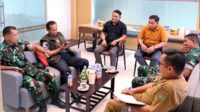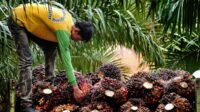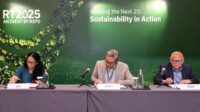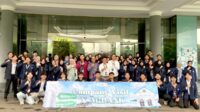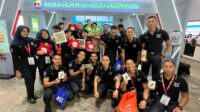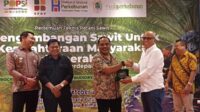PALMOILMAGAZINE, JATINANGOR – In an effort to address sustainability challenges in the palm oil industry, Faiz Ijlal Ismawan, a 2021 Agricultural Engineering student at Institut Teknologi Bandung (ITB), has introduced an innovative technology-based solution. His essay, titled “PAIRS: Leveraging AI and Remote Sensing for Efficient and Sustainable Palm Oil Cultivation,” earned him second place in the Gadjah Mada Agro Expo (GMAE) 2024 Essay Competition.
The competition provided a platform for students and the public to present their ideas on innovation and sustainability in the palm oil industry. Under the theme “Unveiling Palm Oil, Indonesia’s Green Gold,” participants explored solutions to key challenges in the sector.
In his essay, Faiz emphasized the role of artificial intelligence (AI) and remote sensing in improving efficiency and sustainability in palm oil plantations. These technologies enable real-time land monitoring, detect land cover changes, and identify illegal deforestation activities that could harm the environment.
Also Read: ITB and PT SMART Tbk Collaborate on Palm Oil Research
Faiz proposed using Convolutional Neural Networks (CNN) to enhance the accuracy of palm plantation identification. This technology can differentiate oil palm estates from other vegetation and assist in analyzing the environmental impact of plantation expansion.
Additionally, he highlighted the use of drones or Unmanned Aerial Vehicles (UAVs) equipped with sensors and RGB cameras to create virtual plantations. This method allows for more precise plant health monitoring, early disease detection, and accurate yield predictions.
The integration of AI and remote sensing in the palm oil industry is expected to have a significant impact on sustainability. With more precise data analysis, farmers and companies can manage land more efficiently, reduce excessive pesticide use, and ensure compliance with sustainability standards set by the Roundtable on Sustainable Palm Oil (RSPO).
Also Read: Indonesia Strengthens Palm Oil Downstream for Global Competitiveness and Sustainability
“I see great potential in AI and remote sensing to optimize agriculture, particularly in the palm oil sector. As digital technology continues to evolve, we have a tremendous opportunity to drive agricultural transformation toward smarter and more environmentally friendly systems,” Faiz stated, as quoted by beige-heron-208544.hostingersite.com from ITB’s official website on Thursday, March 20, 2025.
Faiz’s achievement in this competition not only demonstrates students’ ability to develop innovative solutions but also reflects the future of a data-driven and technology-based palm oil industry. With proper implementation, AI and remote sensing can propel the industry forward by increasing productivity while preserving the environment.
As technology advances, solutions like Faiz’s could be key to addressing sustainability challenges in the palm oil sector, making it more efficient, eco-friendly, and sustainable for future generations. (P2)












